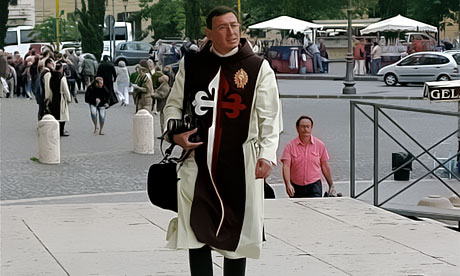At first glance, studies such as Pew’s 2010 report “Religion Among the Millennials” seem to indicate that young Catholics (age 18-29) exemplify their generation’s tendency toward religious indifference. They are less likely to
- attend Mass weekly,
- pray daily,
- consider religion “very important” than Catholics 30 and older.
Yet the millennial Catholics who do practice and value their faith are doing something odd: They are spearheading a resurgence of traditional Catholic liturgy and disciplines that their parents and grandparents had largely abandoned.
A recent study of Catholic religious orders confirmed this trend.
Sister Mary Bendyna, a member of the Sisters of Mercy of the Americas and director of the Georgetown University-affiliated center that conducted the study, summarized the findings for The New York Times.
Compared with older generations, she said, millennials who consider becoming priests or nuns are “more attracted to a traditional style of religious life, where there is community living, common prayer, having Mass together, praying the Liturgy of the Hours (the church’s daily cycle of Scripture readings and prayers) together.”
“They are much more likely to say fidelity to the church is important to them,” she added. “And they really are looking for communities where members wear habits,” the age-old garb of monks and nuns.
A similar desire for traditional religious practice has developed in recent years among many young Protestants, Jews and Muslims, according to a 2007 analysis by the U.S. News and World Report.
Continue reading more about the faith of the millennial generation in “For these millennials, faith triumphs relativism“
